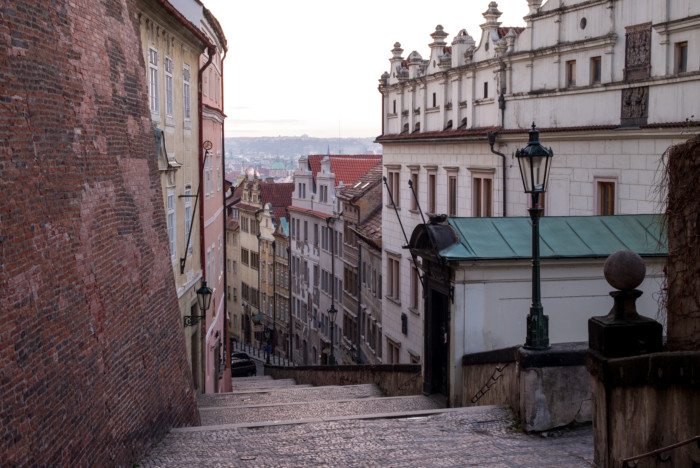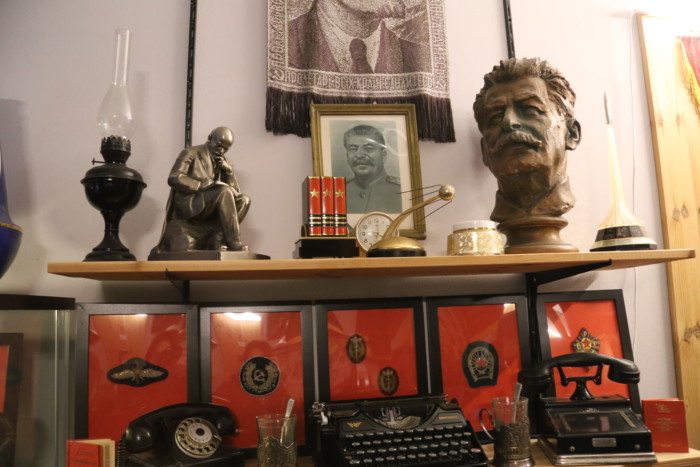KGB Museum: An Unusual Tourist Attraction
My Christmas holiday ended on a good note with a romantic three-day getaway to Prague. Our first two days in the city were lovely and, thanks to a comprehensive free walking tour, we quickly ticked off all the ‘musts’—from exploring the Old Town square to visiting the Jewish Quarter and watching the city lights from Charles Bridge. During the tour, we learnt that despite its beauty, Prague is a city inscribed by a history of violence and oppression. Stories of suffering would intersperse our guide’s humorous anecdotes. Recalling the lyrics of the Czech national anthem, whose refrain rings “Where is my home?”, he recapped the history of a peoples who never quite know to whom they belong. From a kingdom of the Holy Roman Empire, to a state within Austria-Hungary, to a land under Nazi occupation and, finally, to a member of the Soviet Union, the Czech Republic is closely acquainted with foreign rule. For the Czechs, freedom is a tenuous and precious thing. Every day, on our walks to and from the AirBnB, we passed by a touching memorial dedicated to the thousands who ‘disappeared’ under the Soviet control. In little time we had figured that ‘communism’ in Prague is synonymous with tyranny and suffering.
‘Communism’ in Prague is synonymous with tyranny and suffering.
Except in one place. On our last day, we decided to pay a visit to the mysterious ‘KGB museum’. Upon arrival we noted that, far from the typical museum, this was a private collection, administered entirely by one man. The man – a stout, charismatic figure with a heavy Russian accent and scuttling eyes – was to be a tour guide for the next hour. Brimming with a mixture of enthusiasm and dutifulness, he stood proudly amidst a vast collection of Soviet objects, from flags of Stalin’s face to hidden weapons and old telephones. For each object, he asked us to gather round closely before divulging a series of anecdotes about their history. There was the wind up music box given to all members of the KGB on the anniversary of Lenin’s death, the ‘legendary’ hidden camera, the gun disguised as a cigarette pack. Each object fuelled our guide with renewed enthusiasm for the ‘courageous’ Soviet army and their ‘ground-breaking’ technologies. Yet his aptitude for storytelling was not restricted to the KGB. “Nelson Mandela was a puppet of the CIA and the MI6” he asserted with much conviction, “he and his wife killed thousands of innocent people!”. Someone laughed, another nodded. Until now, all we had witnessed was resentment toward the Communist regime. Any traces of Soviet influence in Prague have been erased— Russian is no longer a second language, English is spoken by almost everyone, and former Soviet buildings have been replaced by McDonalds and shopping complexes. But here we were, in the presence of a man who not only believed in Soviet communism but also lived in it. It was as if we had stepped into a parallel world.
But here we were, in the presence of a man who not only believed in Soviet communism but also lived in it.
Moving on to the next room he showed us an impressive collection of weapons, demonstrating how to use each one. By this point suspicions that our guide had been personally involved with the KGB had virtually solidified into conviction. Upon picking up one knife, he sniffed its blade eagerly, whispering “Nazi blood”. Certainly, there was an immense theatricality to it all, and maybe it was, in part, an act. But the impressive collection of memorabilia and weapons was undoubtedly authentic. When one woman handled a Soviet souvenir a little too carelessly our guide’s amicable expression turned into something else entirely: “Don’t!”.
There were times when my heart skipped a beat, when I wondered what on earth I was doing there. Shaking hands with a potential former member of the KGB has never been a life goal. Certainly, I can’t imagine how triggering this experience would have been for one who has personally suffered from the Soviet regime.
I can’t imagine how triggering this experience would have been for one who has personally suffered from the Soviet regime.
From a historical perspective, however, it was fascinating. We had witnessed the workings of a mind like many others of that time, blindly driven by its allegiance to an ideology. If anything, we left the museum with a heightened awareness of the extent that political ideologies can indoctrinate and command people. I would definitely recommend this museum to anyone interested in the history of the Czech Republic, or of the world for that matter. It was, most certainly, a ‘once-in-a-lifetime’ experience.



Comments (1)
Naive, ridiculous and offensive story seven-year-old girl. Human stupidity has no limits. Guide (man is absolutely not FAT) gives very good geopolitical information. You cannot insult people.
This man is very worthy behaves. He is not to blame, that your head is nothing other than tyranny and suffering. You cannot demonstrate your brains washed. You need to be ashamed of this and try to learn more about the world. Good luck !